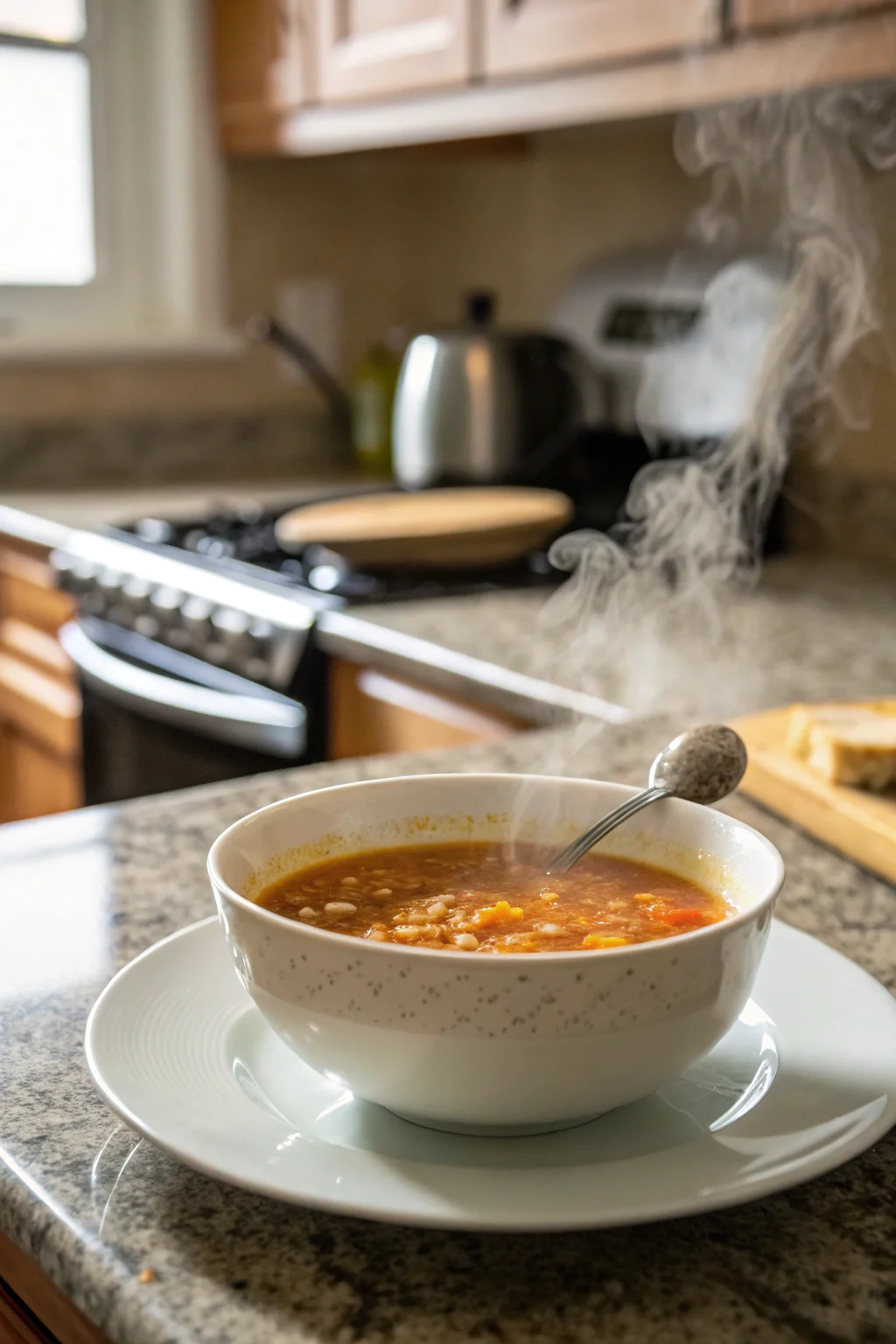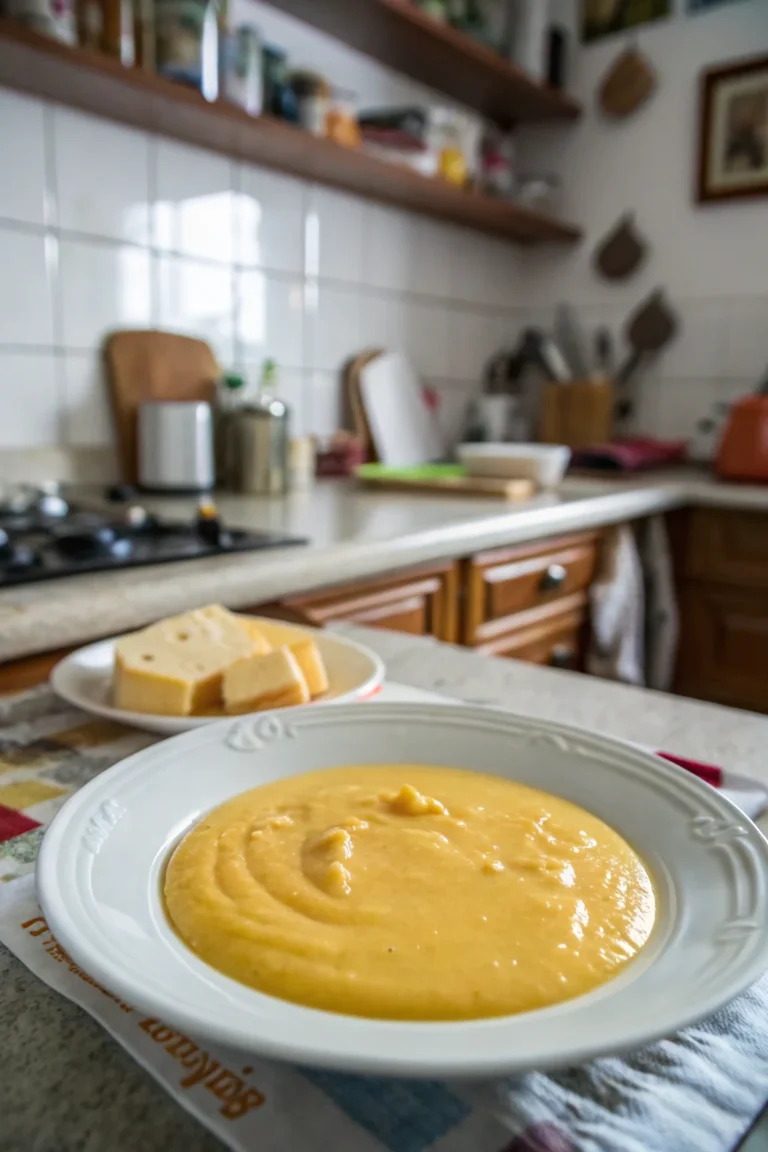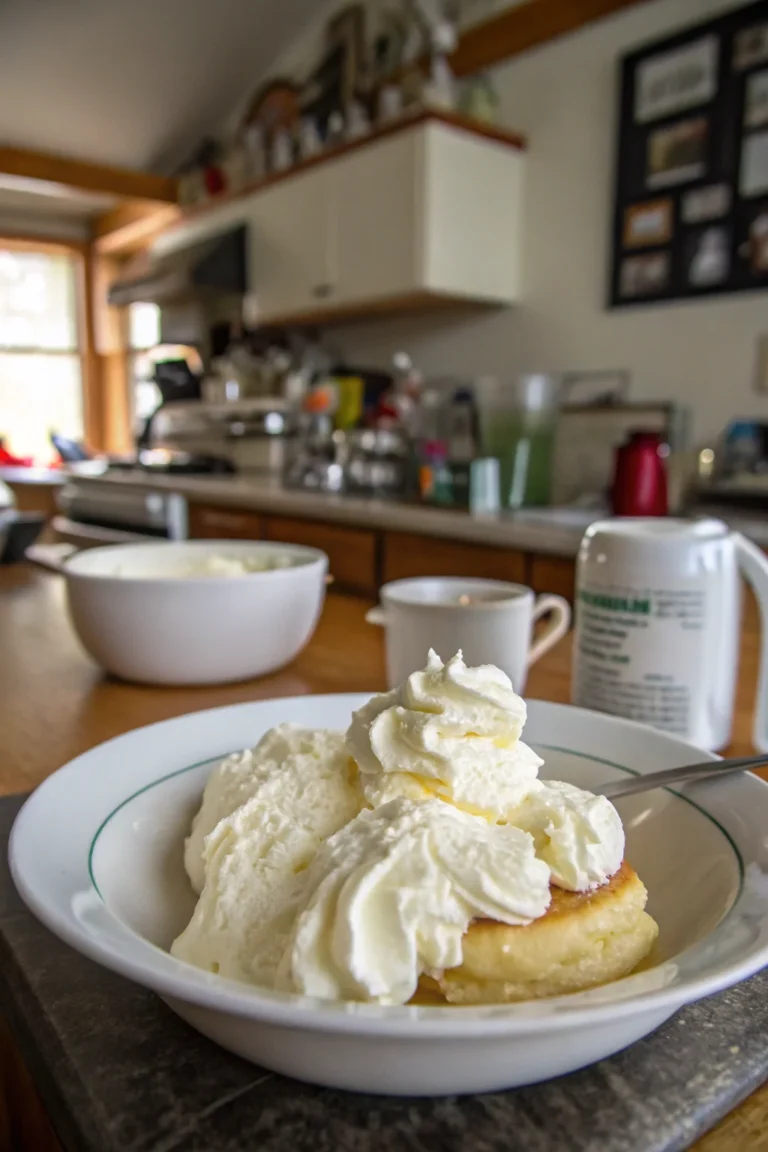How Long Does Homemade Soup Last in the Fridge?
Homemade soup is a comforting and nutritious meal option that many enjoy making in large batches. It allows for creativity in the kitchen and the ability to tailor the ingredients to personal dietary needs or preferences. However, knowing how long homemade soup lasts in the fridge is crucial for maintaining its quality and ensuring it’s safe to eat. In this guide, we’ll delve into common questions about storing homemade soup so you can enjoy your delicious creation without worry.
Table of Contents
What Factors Affect How Long Homemade Soup Lasts in the Fridge?
Several factors can influence the shelf life of homemade soup in the fridge, including the type of ingredients, storage conditions, and the initial freshness of the components used in the soup.
Ingredients Used: Soups containing dairy products or meat may spoil faster than those made solely with vegetables. Dairy can curdle and meat can develop off odors if not stored properly. For example, a cream-based mushroom soup might have a shorter lifespan than a traditional vegetable minestrone. The presence of eggs or seafood can also accelerate spoilage, making it important to monitor these soups closely.
Storage Conditions: Proper sealing and maintaining a fridge temperature below 40°F (4°C) are vital. The cold temperature slows bacterial growth, preserving the soup longer. An airtight container minimizes exposure to air and contaminants, which can compromise the soup’s quality. Consider using glass or BPA-free plastic containers to avoid any chemical leaching, which can sometimes occur with lower-quality plastics.
Initial Freshness: The freshness of the ingredients when you make the soup plays a significant role in how long it will last. Fresh vegetables, herbs, and meats will give your soup a longer shelf life compared to those on the brink of spoiling. Consider using organic produce, which often has fewer preservatives and chemicals, contributing to its purity and freshness.
By considering these factors, you can better predict how long your soup will last and ensure each bowl is as delicious as the first.
How Can You Tell if Homemade Soup Has Gone Bad?
Detecting whether homemade soup has gone bad isn’t solely reliant on the expiration date; it involves using your senses to assess its condition. Here are some tell-tale signs:
Off Smell: A sour or unusual odor is a clear indicator that the soup has gone bad. Trust your nose; it’s often the first sign that something is amiss. A change in smell might not be immediately apparent, so take a moment to inhale deeply when checking.
Mold: Visible mold growth, which can appear as white, green, or black spots, is a definite sign to discard the soup. Mold thrives in moist environments, so once it’s visible, the soup is beyond salvaging. Mold spores can spread quickly, so it’s best to dispose of the entire batch if you spot any.
Texture Changes: If the soup has a slimy or unusually thick texture, it’s time to throw it out. This can be harder to detect in thicker, pureed soups, so it’s important to stir the soup and observe its consistency before deciding.
Taste Test: While not always recommended if spoilage is suspected, a small taste can confirm if the soup is off. If it tastes sour or unusual, it’s best not to consume it. Always spit out and rinse your mouth if the taste is off.
When in doubt, it’s safer to err on the side of caution and discard questionable soup. Consuming spoiled food can lead to foodborne illnesses, which are best avoided by staying vigilant and cautious.
How Should You Store Homemade Soup in the Fridge?
Proper storage is key to extending the life of homemade soup. Here are some detailed tips to ensure your soup remains fresh and delicious:
Cool It Quickly: Let the soup cool at room temperature for no more than 2 hours before refrigerating. Leaving it out longer increases the risk of bacterial growth. To speed up cooling, consider placing the pot in an ice bath or dividing the soup into smaller containers, allowing it to cool more rapidly.
Use Airtight Containers: This prevents contamination and maintains freshness by minimizing exposure to air. Glass containers are excellent options as they won’t absorb odors or stains. If you’re using plastic, ensure it’s BPA-free and food-grade. Avoid overfilling containers to prevent spills and allow for expansion, especially if you plan to freeze the soup later.
Label with Date: This helps track how long it has been stored, avoiding any confusion about its freshness. Use a waterproof marker or labels that won’t dissolve in the fridge. You can also include the type of soup and any specific ingredients that might affect how long it lasts, such as dairy or seafood.
Following these tips helps preserve the soup’s quality and safety, ensuring that each serving is as delightful as when it was first made.
Can You Freeze Homemade Soup for Longer Storage?
Yes, freezing is an excellent option for extending the life of homemade soup. This method can preserve its flavor and nutritional value for months. Here’s how you can do it effectively:
Divide into Portions: Freeze in single servings for convenience. This not only makes reheating easier but also prevents waste, as you only defrost what you need. Consider using silicone muffin trays for perfect portion sizes before transferring the frozen portions to freezer bags.
Use Freezer-Safe Containers: Ensure they are designed to withstand freezing temperatures. Leave about an inch of space at the top of the container to allow for the liquid to expand as it freezes. Vacuum-sealed bags can also be a great option, as they remove air and prevent freezer burn.
Label with Date: Most soups last up to 3 months in the freezer. For best quality, consume them within this timeframe. Include both the date of freezing and any special reheating instructions, such as whether the soup contains ingredients that might separate upon thawing.
By freezing, you can enjoy your homemade soup at a later date without worrying about spoilage, making it an efficient way to have ready-to-eat meals on hand.
How Long Does Homemade Vegetable Soup Last in the Fridge?
Homemade vegetable soup can last 3 to 4 days in the fridge. The absence of meat or dairy helps extend its shelf life, making it a go-to option for those looking to meal prep for the week. Ensure proper storage in airtight containers to maximize freshness.
To enhance the longevity and flavor of your vegetable soup, consider these additional tips:
Use Fresh Herbs Sparingly: While fresh herbs like parsley and cilantro add flavor, they can wilt and spoil quickly. Add them just before serving or consider using dried herbs during the cooking process for a more stable flavor.
Include Acidic Ingredients: Ingredients like tomatoes can naturally preserve the soup due to their acidity, which can help inhibit bacterial growth.
For more tips on storing vegetables, check out our guide on how to store fresh produce.
How Long Does Homemade Chicken Soup Last in the Fridge?
Homemade chicken soup typically lasts 3 to 5 days in the fridge. Chicken soup is beloved for its nutritious qualities and comforting nature, especially during cold seasons or when feeling unwell. To ensure it stays fresh, follow these guidelines:
Cool Quickly: Refrigerate within 2 hours of cooking to minimize bacterial growth. You can speed up the cooling process by using an ice bath or transferring the soup into shallow containers.
Use a Tight Seal: Keeps bacteria out and helps maintain flavor. Opt for glass containers with snap-on lids to ensure a perfect seal.
Consider the Broth: If your chicken soup is broth-heavy, it might separate upon cooling. Stir it well before reheating to ensure a consistent flavor and texture.
For related tips on handling chicken, visit USDA’s guidelines on poultry safety.
Can Adding Vinegar or Acid Extend Soup’s Shelf Life?
Adding acidic ingredients like vinegar or lemon juice can slightly prolong a soup’s freshness by lowering pH levels, which inhibits bacterial growth. This technique can be particularly useful in soups that are predominantly vegetable-based, such as gazpacho or borscht.
However, while acidity can help extend shelf life slightly, it should not replace proper storage techniques. Always ensure that soup is stored in a cool environment and in airtight containers. Additionally, note that too much acid can alter the taste of the soup significantly, so balance is key. A splash of apple cider vinegar or a squeeze of lemon juice can enhance the flavor while helping with preservation.
Is it Safe to Reheat Homemade Soup?
Reheating homemade soup is safe if done correctly. Proper reheating ensures that any bacteria that might have developed is killed, preserving both the safety and taste of the soup. Here are some best practices for reheating:
Heat to 165°F (74°C): Use a food thermometer to ensure accuracy and safety. This temperature is sufficient to kill most pathogens that could have developed during storage.
Stir Frequently: This ensures even heating, especially in thicker soups where hot spots can develop. Stirring helps distribute heat evenly, preventing the bottom from burning while the top remains cold.
Reheat Just Once: Avoid reheating the same batch more than once to prevent bacterial growth. If you anticipate having leftovers, only reheat the portion you plan to consume immediately.
Reheating on the stovetop in a saucepan often yields the best results, but if using a microwave, cover the soup and stir it halfway through heating to ensure even temperature distribution.
Can Homemade Soup Be Stored in the Fridge in a Pot?
While storing soup in its cooking pot is convenient, it’s better to transfer it to a smaller, airtight container. Here’s why:
Flavor Alteration: Metal pots, especially those made of aluminum or copper, can alter the soup’s flavor over time due to reactions with acidic ingredients like tomatoes or lemon juice. This can sometimes impart a metallic taste to your soup.
Sealing Issues: Pots often do not seal well, increasing the risk of contamination and exposure to air, which can spoil the soup faster. Lidless storage can also result in the soup absorbing other fridge odors.
Space Efficiency: Storing soup in a pot can take up unnecessary space in the fridge. Using stackable containers can help maximize storage efficiency.
Therefore, while it might be tempting to keep the soup in the pot it was cooked in, transferring it to a sealed container is a better choice for longevity and quality.
What Are the Risks of Eating Expired Homemade Soup?
Consuming expired soup can lead to foodborne illnesses with symptoms like nausea, vomiting, and diarrhea. These symptoms can be severe and may require medical attention, especially in vulnerable populations such as the elderly, young children, and those with compromised immune systems.
Bacterial Growth: Pathogens like E. coli, Salmonella, and Listeria can flourish in expired or improperly stored food, posing serious health risks.
Toxins: Some bacteria produce toxins that are not destroyed even if the soup is reheated to a safe temperature, making it crucial to avoid consuming expired soup altogether.
Always check for spoilage signs and adhere to recommended storage durations to avoid health risks. If you’re ever uncertain about the soup’s freshness, it’s best to err on the side of caution and discard it.
How Can You Preserve the Flavor of Homemade Soup in the Fridge?
To maintain the flavor of your homemade soup while it’s stored in the fridge, consider these tips:
Seal Tightly: Prevents absorption of fridge odors, which can alter the soup’s intended taste. A tight seal also retains the aromatic qualities of the soup.
Use Fresh Ingredients: Using fresh, high-quality ingredients not only enhances the initial taste but also ensures that the flavors remain robust over time.
Separate Components: For soups with noodles or rice, consider storing them separately from the broth. This prevents the carbohydrates from absorbing too much liquid and becoming mushy.
Avoid Storing with Strong-Smelling Foods: As soup can easily absorb odors, keep it away from pungent foods like onions, garlic, or certain cheeses.
By following these practices, you can help ensure that each bowl of soup is as flavorful as the day it was made.
Does the Type of Soup Affect How Long It Lasts?
The type of soup you make can significantly affect how long it lasts in the fridge. Here’s a breakdown:
Dairy-Based Soups: These, such as chowders or cream of broccoli, have a shorter shelf life because dairy is prone to spoilage. They typically last 1 to 2 days in the fridge.
Seafood Soups: Given the perishable nature of seafood, these soups should be consumed within 1 to 2 days.
Vegetable and Grain Soups: These can last 3 to 4 days, as they generally contain ingredients that are less prone to spoilage.
Meat-Based Soups: Chicken or beef soups usually last 3 to 5 days, depending on how fresh the meat was when you made the soup.
Always consider the most perishable ingredient when determining shelf life, and use that as your guide for how quickly the soup should be consumed.
Why is Homemade Soup Better than Store-Bought for Storage?
Homemade soup often contains fewer preservatives, making it a healthier choice overall. The ability to control the ingredients means you can avoid excessive sodium, artificial flavors, and additives commonly found in store-bought versions. This control is particularly beneficial for those with dietary restrictions or allergies.
However, because homemade soup lacks preservatives, it might not last as long as store-bought versions. This means proper storage is even more crucial for homemade varieties. Despite the shorter shelf life, the benefits of freshness and flavor often outweigh the convenience of longer-lasting store-bought soups.
Moreover, making soup at home allows for customization and the use of seasonal ingredients, which can enhance the nutritional value and taste. By being mindful of storage techniques, you can enjoy the health benefits and superior taste of homemade soup without compromising on safety.
Wrap-Up
Knowing how long homemade soup lasts in the fridge helps ensure you enjoy it safely and at its best quality. By following proper storage guidelines and being mindful of signs of spoilage, you can savor each bowl with confidence. Whether you’re making a hearty chicken noodle soup or a light vegetable broth, understanding how to store your creations will maximize their shelf life and flavor. For more tips on homemade cooking and storage, explore our other articles on meal prep tips and food safety basics.








